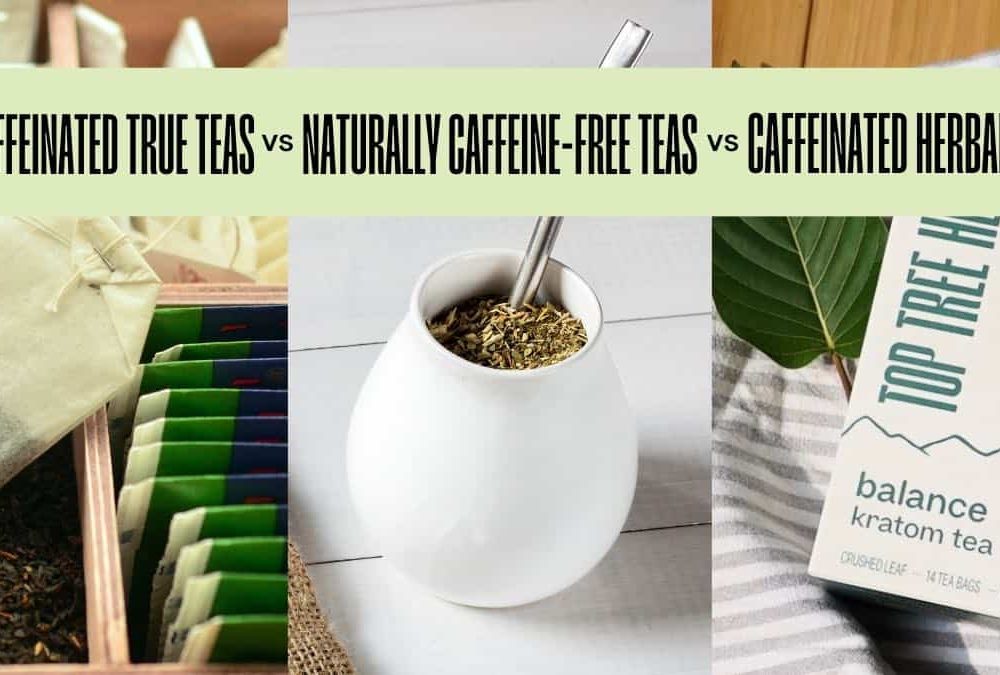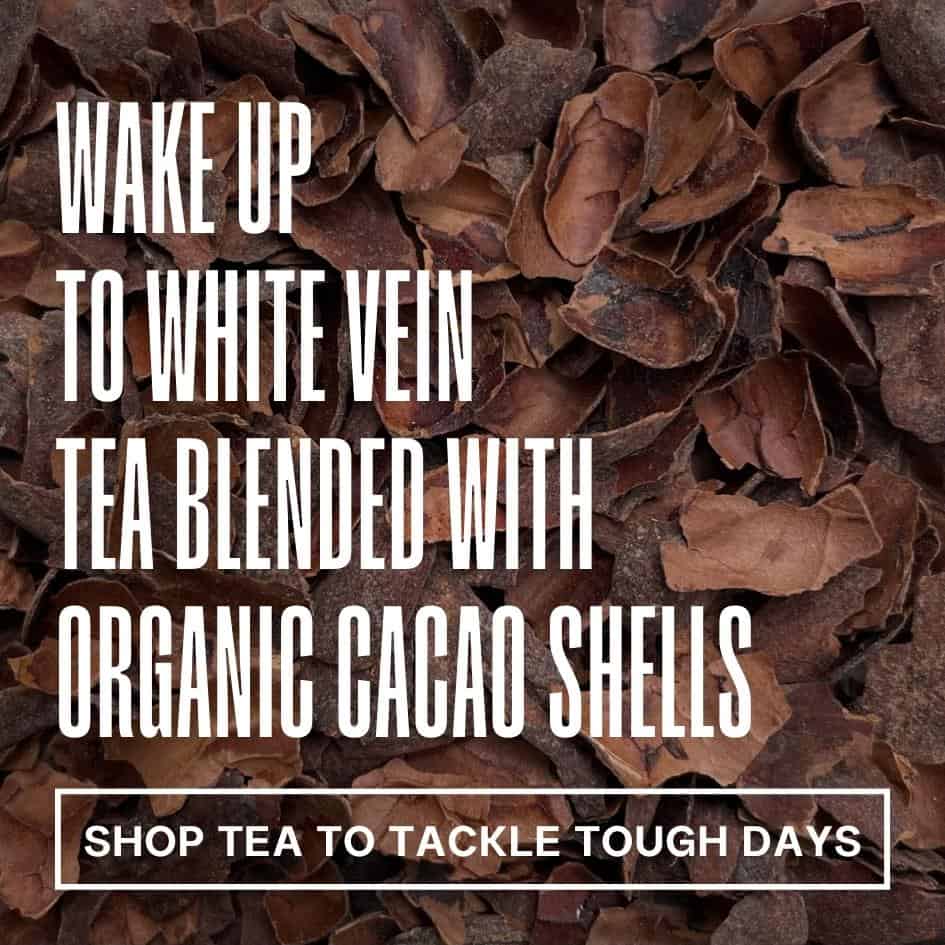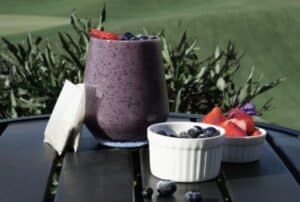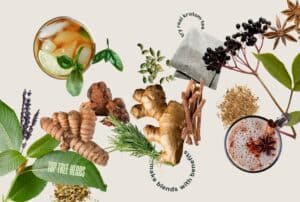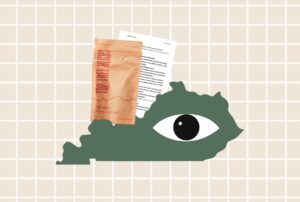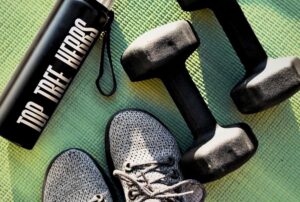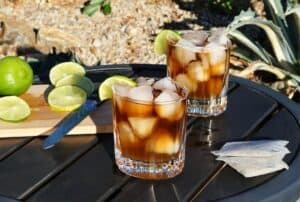Do you find yourself constantly drinking coffee despite the fact that the caffeine doesn’t always make you feel good? Herbal tea might be a great substitute to satisfy your the desire for a tasty hot drink. But does herbal tea contain caffeine?
It’s a slightly more complicated question than expected, and we’re here to dig into the details so you can find the best tea for waking up, winding down, and anything in between.
Why would you want to know if herbal tea has caffeine? From coffee to black tea to soda to caffeine-laden energy drinks, and even caffeinated chocolate bars or candies, the caffeine options in our culture are endless. Yet amidst the caffeine hype, people are realizing that caffeine’s benefits don’t always outweigh its drawbacks.
To read more about the drawbacks of caffeine and the best energizing teas that don’t have caffeine, check out our guide, The Best Caffeine-Free Teas to Stay Energized.
Which Herbal Teas Have Caffeine?
Most herbal teas do not have caffeine. Yerba mate, guarana, and yaupon are the exceptions to the rule. However, some tea aficionados would argue that those aren’t true herbal teas.
Can Herbal Teas Without Caffeine Be Energizing?
It’s important to note that while most herbal teas don’t contain caffeine, there are still many herbal teas that are energizing.
You may think that herbal teas are all supposed to help you rest and relax. As many people prefer to avoid caffeine before bed, we tend to associate herbal tea with sleep and relaxation. Examples include valerian tea, herbal masala chai, and chamomile tea.
However, it’s not always the case that herbal teas are calming. Some herbal teas have caffeine-like compounds that can wake you up and help you stay motivated.
To understand how herbal teas without caffeine can affect you, it’s helpful to first familiarize yourself with some general knowledge about tea.
What is a Real Tea or True Tea?
To start, we need to address the elephant in the room. For the tea snobs and quiz bowl champs, we’re well aware that “tea” has a narrow and specific meaning.
While we use the term “tea” colloquially to refer to both regular teas and herbal teas, the technical term only refers to teas made from a specific type of leaf.
There’s a difference between a real tea (or true tea) and herbal tea.
While we use the term “tea” colloquially to refer to both regular teas and herbal teas, the technical term only refers to teas made from a specific type of leaf. The definition of “tea” is a hot beverage made from steeping leaves of the Camellia sinensis shrub in water.
Which Teas Come from Camellia sinensis?
Teas made with Camellia sinensis include black tea, green tea, oolong, or white tea. Since all these teas come from the same plant, what makes these teas different?
Why is black tea different from green tea if they both come from Camellia sinensis leaves? After all, the various types of true tea differ in caffeine content, taste, color, and compounds.
The differences between regular tea types come from how the Camellia sinensis shrubs are grown and how the leaves are harvested, dried, and processed.
Why do True Teas Have Caffeine?
In general, teas derived from the Camellia sinensis bush contain caffeine. In nature, caffeine serves as a pesticide that protects the tree from hungry bugs.
While it may deter bugs, it has attracted hordes of thirsty humans. Unless your tea has been synthetically decaffeinated, C. sinensis tea will always have caffeine.
So if you love quenching your thirst with a warm drink but are looking to stay away from caffeine for one reason or another, you’ve got to start barking up a different tree.
What is Herbal Tea? Tisane vs. True Tea
What’s the definition of herbal tea? These are hot drinks made with any plant aside from Camellia sinensis. A less-common name for this category is actually tisane (pronounced tuh-zan).
Herbal teas or tisanes are made by decocting or infusing herbs, spices, roots, or other plant materials in hot water.
While standard non-herbal teas all come from a single species—the tea plant, good ol’ Camellia sinensis—herbal teas are not limited to one species. Rather, herbal teas can contain leaves, flowers, and seeds of hundreds of different plants.
A few herbal tea ingredients you might be familiar with are rooibos leaves, chamomile flowers, ashwagandha root, ginger root, dandelion, peppermint leaves, and so on.
Herbal Tea without Caffeine vs. Decaffeinated Tea
Typically, plants used in herbal teas have no caffeine to begin with. Alternatively, decaffeinated teas are made by removing the caffeine from Camellia sinensis, yerba mate or another plant that produces caffeine.
Typically, caffeine is removed from tea using solvents or a CO2-based extraction process.
Does the Decaffeination Process Remove all the Caffeine in Tea?
The decaffeination process removes most of the caffeine from caffeinated teas. However, decaffeination can reduce some of the natural benefits of tea, such as its antioxidant content. Furthermore, the decaffeination process doesn’t usually remove 100% of the caffeine content from the tea leaves.
By law, tea that’s labeled as decaffeinated should contain less than 2.5% of its original caffeine content, so it’s not a truly caffeine free tea.
This usually equates to less than 2 mg per cup, which is relatively very little. If you’re very sensitive to caffeine or looking to cut out caffeine completely, you’ll want to stick to herbal teas that don’t have caffeine in them to begin with.
Tisanes, Infusions, and Decoctions
Depending on how you go about it, the correct terms to describe all teas (including herbal teas and true teas, caffeinated teas and decaffeinated teas) would be a tisane, infusion, or decoction. Here are the technical differences between these terms:
- Tisane: an infusion or decoction of plants other than Camellia sinensis, typically used for medicinal benefits.
- Infusion: made by steeping softer parts of plants, like leaves or flowers, in hot or cold water.
- Decoction: these herbal drinks are simmered rather than steeped, as they are made with hardier parts of plants like bark, large seeds, and roots.
A decoction is much like an infusion, except the water is actively simmering. Usually, decoctions are left for hardier plant material such as bark or roots.
Why Would You Simmer Certain Plants Instead of Steeping Them?
That being said, many traditional plant drinks, not just those using roots or bark, are made in a pot on a fire.
More delicate flavors and essential oils can be lost due to heat degradation or evaporation, which is why decoctions are not best for everything. But for those tough-to-extract treats hidden deep within the cell walls of a plant, a decoction will do the job.
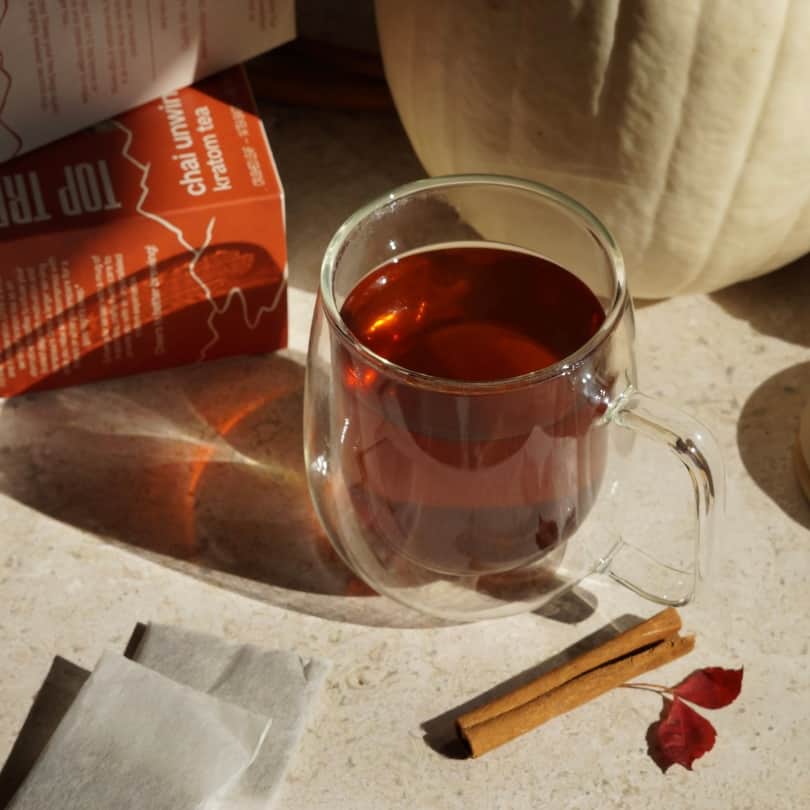
Lastly, there is also the herbal blend category. An herbal blend usually refers to a tisane consisting of a mix of herbal teas. An example of an herbal blend is a drink made with chamomile, lavender, and lemongrass together, or an herbal masala chai with chamomile flowers, cinnamon, cardamom, and cloves. Usually, herbal blends have no caffeine.
How Herbal Teas with no Caffeine Can Effect You
Coffee and black tea are energizing primarily because they contain caffeine, an alkaloid with a very noticeable psychoactive effect. Though they don’t have caffeine, true herbal teas can still have a range of physiological effects.
These include energizing and motivating effects, soothing and calming effects, or more intense sleep-inducing effects.
Energizing Herbal Teas
As we mentioned, some herbal teas have caffeine, but these are not the only herbal teas that can be energizing.
Herbal teas without caffeine can still offer uplifting effects, often through a different mechanism than the stimulant action of caffeine. Here are some examples:
- Ginseng tea
- Peppermint tea
- White vein kratom tea
- Ginger tea
- Rooibos tea
- Lemongrass tea
- Ashwagandha tea
Calming Herbal Teas
Calming herbal teas work through various mechanisms, often involving soothing the nervous system or promoting relaxation. Here are some notable examples:
- Chamomile tea
- Lavender tea
- Valerian root tea
- Lemon balm tea
- Passionflower tea
- Holy basil (tulsi) tea
- Peppermint tea
- Red vein kratom tea
You’ll notice some overlaps on the lists of energizing and calming herbal teas. Indeed, some teas can both motivate and relax you at the same time. There are also teas that can effect you differently when you consume different serving sizes.
Kratom tea, for example, is energizing in smaller servings but more relaxing and relieving in larger servings. It has no caffeine. However, it contains different alkaloids that are though to give it its wide range of benefits.
Is Herbal Tea Safe to Consume?
Herbal tea is generally considered safe for most people to consume. However, as with any food or wellness product, there are considerations and precautions to be aware of. This is especially true if you are pregnant or nursing, you have a health condition, or you are taking medications.
The safety of herbal tea depends largely on the herbs used in its formulation. Some herbs can have strong effects, and a few may cause adverse reactions in certain individuals, especially if consumed in large quantities. Drinking certain herbal teas and other herbal preparations in moderation is key.
It’s important to remember that just because a product is natural does not automatically mean it is safe for everyone. If you have any specific health concerns, it’s always a good idea to consult with a healthcare professional before adding new herbal teas to your diet.
Does Herbal Tea Have Caffeine? Typically No, but its Other Compounds Can Be Extremely Beneficial
For the most part, herbal teas have no caffeine. Yet, they’re still effective in their own ways. If you want to quit caffeine, that doesn’t mean you have to completely give up energizing drinks if you’re in need of some extra motivation.
Related: Best Herbal Teas You’ve Probably Never Heard Of
While the world of beverages is often dominated by caffeine, herbal teas offer a diverse and healthful alternative. Whether you’re seeking an energizing boost without the jitters of caffeine or a soothing remedy to unwind after a long day, herbal teas cater to a wide array of needs.
From the invigorating properties of ginseng and peppermint to the calming effects of chamomile and valerian root, these teas provide benefits that extend beyond mere hydration. They are a testament to the power of nature, offering a gentle yet effective way to enhance our daily well-being.
So next time you’re considering a cup of coffee or tea with caffeine, remember the rich world of herbal teas that awaits, brimming with flavors and benefits uniquely their own.
